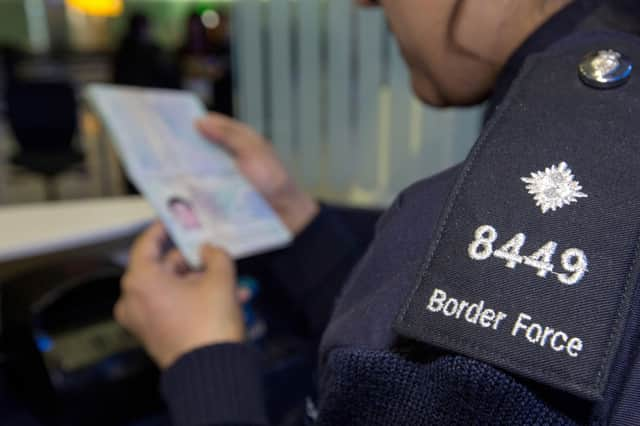Settlement scheme’s 230,000 late claims


EU citizens and their families were asked to apply by June 30 in order to carry on living and working in the UK, after freedom of movement ended following the Brexit transition period.
According to provisional Home Office figures, 236,840 applications were received after the deadline and up to the end of October.
Advertisement
Hide AdAdvertisement
Hide AdSince the scheme launched in March 2019, more than six million applications (6,287,700) have been submitted.
More than three million of those (3,068,700) were granted settled status, allowing them permanent leave to remain.
A further 2.4 million (2,460,900) have been permitted pre-settled status, meaning they need to reapply after living in the country for five years to gain permanent residence.
The Home Office said 8% of the applications were from “repeat applicants” (472,220) – suggesting an estimated 5.5 million people had applied to the scheme before the deadline.
Advertisement
Hide AdAdvertisement
Hide AdSome 180,500 applications were refused, 103,900 were withdrawn or void, and 94,000 were deemed invalid – where the Home Office decides someone is not eligible to apply or has failed to provide sufficient proof of residence.
The applications received after June 30 will include a mix of late submissions, those from family members, and requests to move from pre-settled to settled status, the government department said.
It is not known how many people in the UK are eligible for the scheme but could remain in the country undocumented.
Anyone who is yet to apply effectively lost their lawful immigration status after the deadline. This could prevent them getting a new job or moving house until their status is confirmed.
Advertisement
Hide AdAdvertisement
Hide AdThere are limited reasonable grounds for submitting late applications, including where parents, guardians or councils have failed to apply on behalf of a child; those with serious medical conditions preventing them from applying in time; or “compelling or compassionate reasons” in light of the coronavirus pandemic.